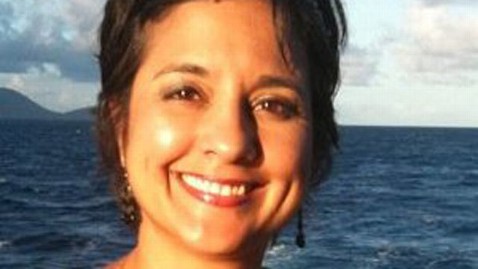Young Breast Cancer Survivors Cured but Not OK

(Image Credit: Courtesy Susan G. Komen Foundation)
Nicole Vazquez was diagnosed with an aggressive form of breast cancer at age 34, a time when she was surrounded by healthy young friends and was professionally active.
"I didn't realize the impact at first," said Vazquez, now a healthy 40-year-old from Dallas, who had been focused on her career as a meeting planner. "Within two weeks, I went from being able to plan my life to having no control. It really hit me."
Thanks to chemotherapy and then surgery, she survived, just celebrating her five-year mark of being cancer free. But treatments have left her with questions about her future fertility and, being so young, she had the additional burden of navigating the dating scene and trying to stay vital in her career.
"I had been physically active in sports, running and playing soccer and I had to quit all that," she said. "I had a medi-port sticking out of my chest that I had to cover up. Suddenly, here I was trying to go out and meet people and I was very self-conscious. … I didn't have a boyfriend and now I would be bald. And after the chemo, I really looked sick. Self-image is a really big deal. … And I couldn't share it with that many people."
She even slipped into a depression, not during her "fight" against cancer but after it was over. Her doctor looked at her and said her reaction was "long overdue."
Breast cancer survival rates have improved dramatically in the past two decades, but the cancer treatments that have allowed more women to survive have also taken a heavy toll, especially on women who are diagnosed at an early age.
Women younger than 50 who survive breast cancer face an array of quality of life challenges: psychological stress, weight gain and decline in physical activity, according to a study published today in the Journal of the National Cancer Institute. They also struggle with reproductive issues such as infertility and early-onset menopause.
In studies that were published between January 1990 and July 2010, researchers at the Jonsson Comprehensive Cancer Center at the University of California-Los Angeles found that overall quality of life was compromised in the younger survivors with both physical and mental health problems. Young women were often more depressed than older survivors because of associated fertility issues.
Breast cancer is the most common non-skin cancer in women, and is the leading cause of death in women younger than 50 in the United States, according to the American Cancer Society.
"By tailoring adjuvant therapy regimens and giving cytotoxic therapy only to those who may benefit, we can mitigate some of these side effects, but the long life expectancy for these younger women also provides a window of opportunity for cancer prevention and health-promotion activities," the study concluded.
American Cancer Society estimates show that of the 182,460 new cases of breast cancer in females each year, an estimated 10,000 will be women younger than 40 and nearly 23,000 younger than 45, according to the Young Survival Coalition, a national advocacy group based in New York City. Breast cancers account for 26 percent of all cancer in females ages 15 to 39 and 39 percent of women ages 35 to 39.
Younger women find it more difficult to embrace their new body after cancer-related surgery. Whether they are married or single, they also face intimacy issues in dating and relationships, according to the coalition. Treatments such as chemotherapy and radiation can also affect a woman's plans to have children, sometimes rendering her infertile.
When women are younger, they are more apt to be working and a cancer diagnosis can hit them hard economically as they struggle to keep working. Additionally, many will not have health insurance or their plans might not adequately cover cancer treatments.
"Appearance is a big deal, and not in a vain way," Vazquez said. "I was in the field working and didn't want clients to say, 'Oh, poor pitiful Nicole has cancer.'"
She is in a long-term relationship now and, with an irregular menstrual cycle, is wondering whether she will ever have children. Because her "triple negative" form of cancer was so virulent, Vazquez had no time to freeze her eggs before chemotherapy.
But she remains upbeat and mentors other young cancer survivors through the Susan G. Komen Foundation in Dallas. She knows young women, particularly, need support.
In its own studies, the Komen foundation has found that quality of life issues are widespread, troubling and require attention from health care providers and survivors.
They report 87 percent of survivors rated at least one social, physical or emotional issue as a moderate to very severe problem. Their most frequent causes of distress were fatigue, sexual dysfunction and sleep issues, as well as depression.
"My advice is to stay positive and stay strong," Vazquez said. "We hear such negative information [about cancer], but you can only fight one battle at a time. We are so engulfed in our disease that we forget we have to live our lives every day."